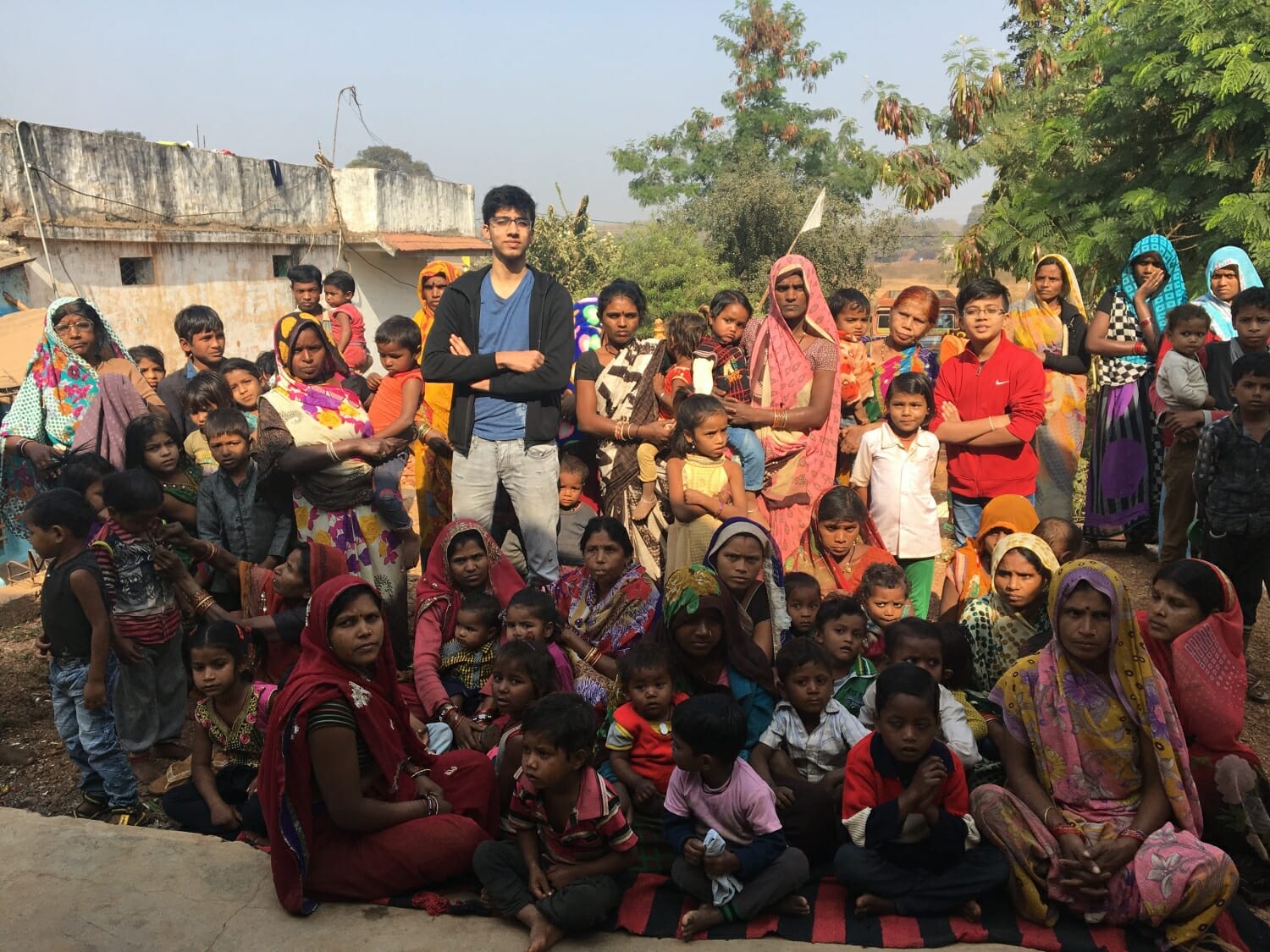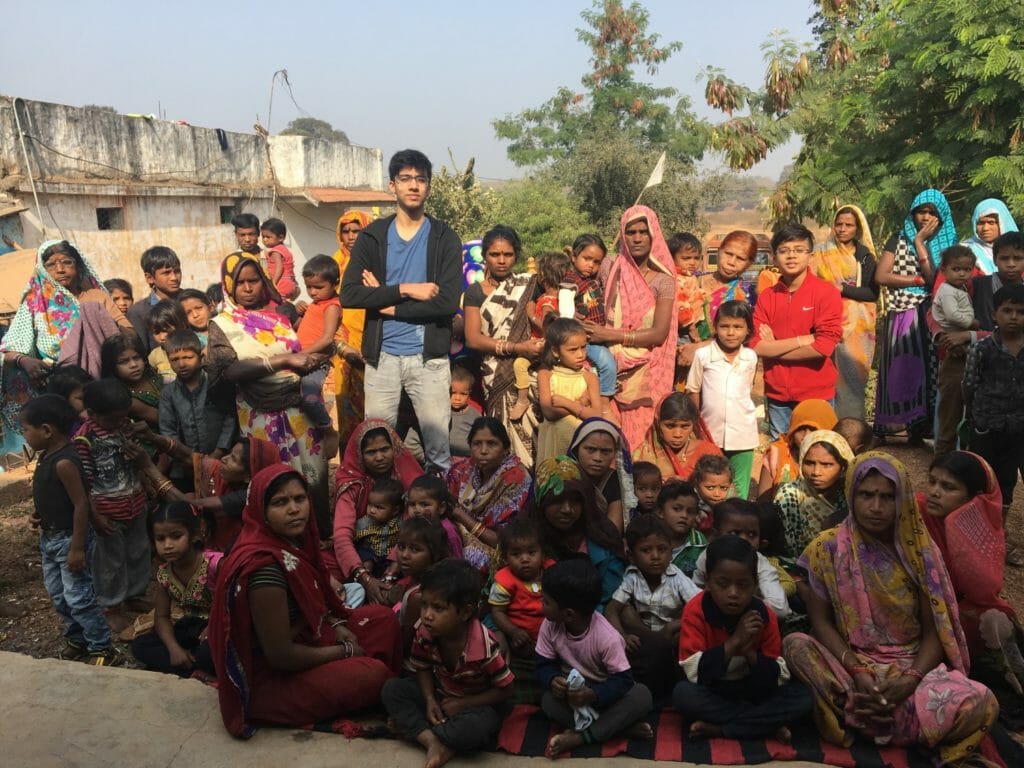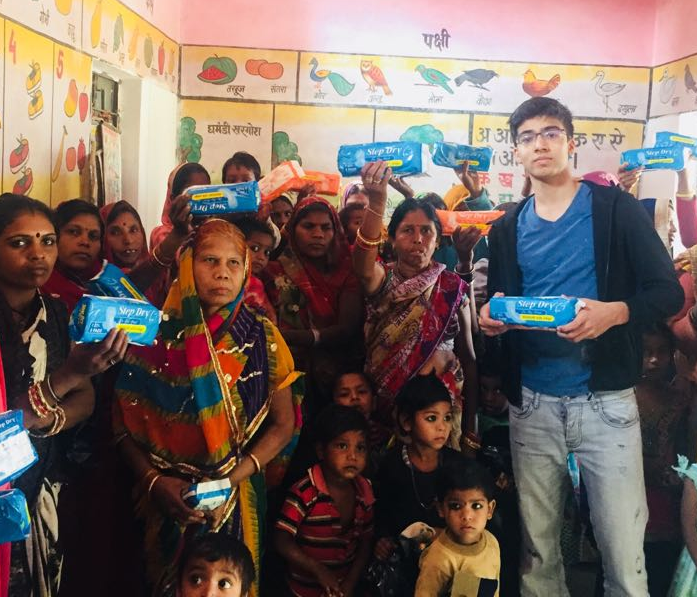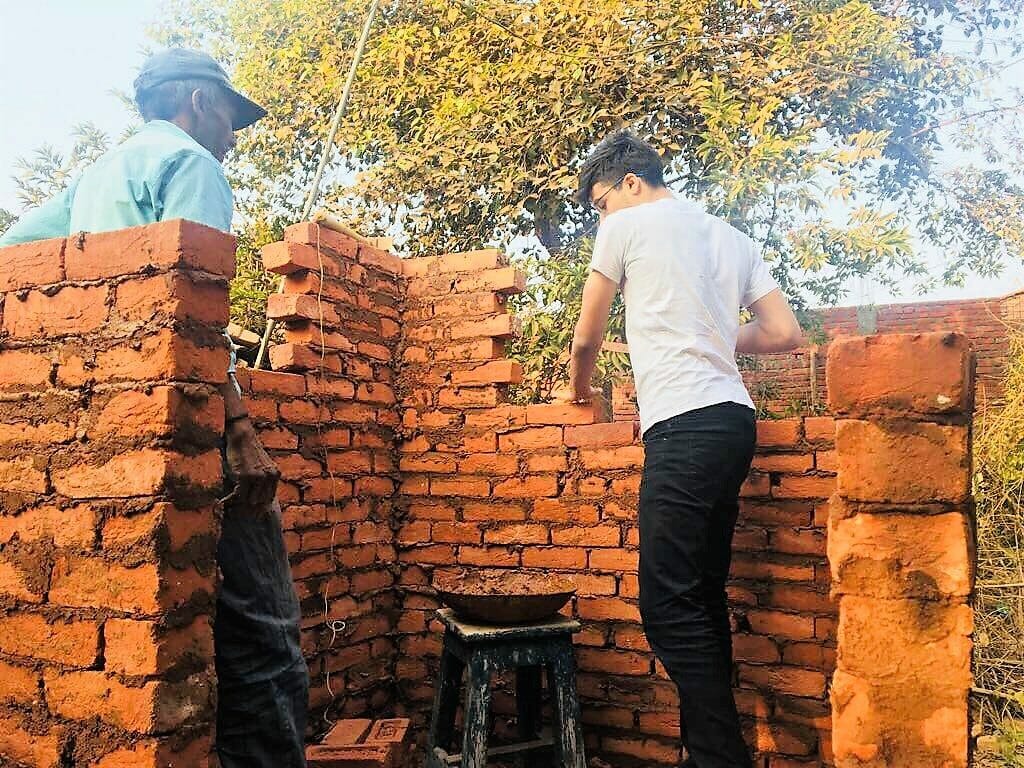Replacing Shame and Stigma with Hope and Change


Ansh Jain began an interest in community service as a boy growing up in Peoria, Ill. In 2016, he visited Nepal for a three-week hospital volunteer stint. Ansh was amazed to learn that many women who came to the hospital complaining of stomach aches or urinary infections, were in fact, not sick, but struggling during their menstrual cycles for lack of proper sanitary products. He found that 88 percent of menstruating women in India are forced to use unsanitary alternatives, such as rags, ash, sand and husk. Poor menstrual hygiene in India causes one in four girls to quit school upon reaching puberty, he says, and also can cause reproductive disease.
Ansh, whose parents emigrated to the United States from India in 1997, visited the village of Teori, his grandparents’ hometown in 2015. He was inspired to help Teori and other poor villages fight poverty.
Ansh, now 16, continues to raise money for the poor, which he donates to nonprofit organizations that purchase sanitary products at a discounted rate. Ansh visits poor villages regularly, to teach proper hygiene and to distribute the products.
What inspires you to volunteer?
I have built a connection with community service from a very young age, volunteering in service activities from the age of 10. Volunteering is now an integral part of my life. Volunteering and giving back to the community provide a sense of satisfaction not attainable through any other outlet. Since I have the privileged ability, as a part of this advanced society, to positively impact those struck with poverty and misfortune, I will attempt to make a statement in deprived areas of the world and continue to stay inspired.
Describe your volunteer role.
With the aid of those around me, I initiated a project with a small vision of bringing about positive change in rural areas of India, starting with the village of Teori, which is incredibly poverty-struck. I was able to fundraise through donation drives and other activities. I am constantly connected to the village, visiting at least twice a year. With the help of NGOs and higher authorities, we have spread multiple causes and helped hundreds of unfortunate villagers.

You say you are privileged. What do you mean?
During our visit to the village, a sense of realization sank in about how fortunate we are to be living in a highly advanced society. While we were there, temperatures were soaring as low as 6 degrees every night. In the mornings, I would see many women and children on the roads walking with pots and buckets and upon asking, they said they had to walk 8 kilometers daily in the mornings in order to get water to sustain their families. This really struck a chord within me that many of the women didn’t have a toilet built near their house, which is what we see as a basic convenience.
Why are you, a male, promoting issues for women, such as supplying sanitary napkins? Do you feel you are successful as a male in advocating for this issue?
Our society does not like boys talking about the menstrual cycle. In villages in India, it is treated as a “sin.” Our biggest challenge was to break the barrier of girls accepting a boy talking about this topic. I overcame it by telling them that this is a biological process and they should not be ashamed. I shared that men and boys also go through puberty. Convincing NGOs and family/friends to participate in this cause was also very difficult. I personally feel that I have been successful as a male advocate. We have seen an increase in the attendance over the period of time in the schools we have covered so far. Our idea is to take it to many surrounding villages.

What’s been the most rewarding part of your work?
Communicating with the villagers first-hand has been an extraordinary learning experience. Being able to break barriers with the villagers on a personal level and attend to pressing issues of their society has been pleasurable as well as rewarding.
Are there any future partnerships, programs, or events that you are excited about?
During my latest visit I saw that many small kids were working in factories. More than 68 percent of India’s population lives in absolute poverty and the literacy rates are the lowest globally. My new project, Factory to Classroom, will allow a completely new group of primary school students to enroll and study alongside the existing primary school students for their first five years of education – one group learning all morning and another group in the afternoon. We will additionally be providing educational materials, such as stationary, textbooks and puzzles.
Why do you think it’s important for others to give back?
As individuals who have the ability to impact the community, we should use our ability and give back in all ways possible. Staying engaged in community service helps us gain interesting perspectives from different spectrums of the world. Giving back helps us grow as individuals, as we gain insight into issues faced by societies and our capacity to help.
Do you want to make a difference in your community like Ansh? Visit All for Good for local volunteer opportunities.
Post written by Kay Nolan
